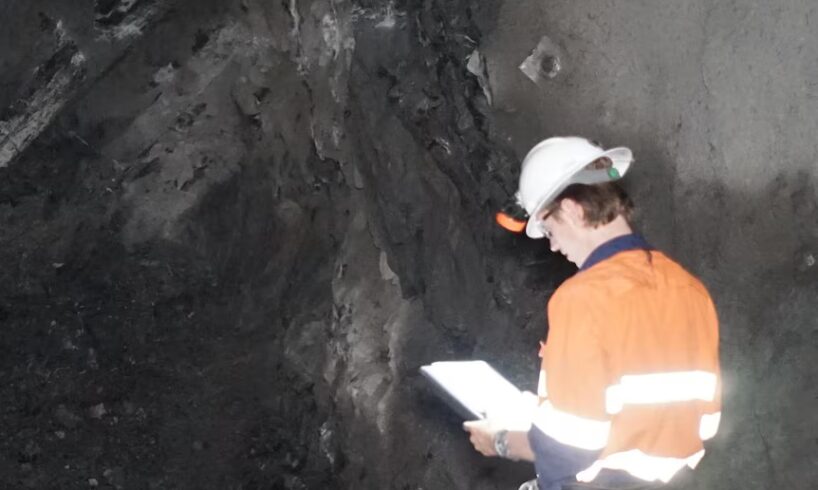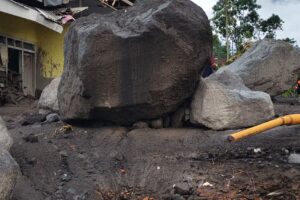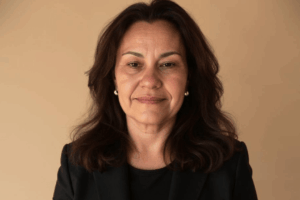
Anthony Dale grew up with a fascination of the gold mines around his home in the Victorian town of Warrandyte.
Attracted to the history, science, technology, and the “treasure hunt”, he was drawn to study a major in geology at Federation University in Ballarat, but has now discovered he will not be completing the degree after the university scrapped the subject last month.
“I feel very frustrated with the uni — there’s been almost no communication,” he said.
“I guess people just feel like they’ve been kept in the dark and then kind of ripped off in terms of the quality of the education.”
Anthony Dale says he chose Federation University as it had a strong geology course. (Supplied: Anthony Dale)
Two years into his degree, Mr Dale will need to switch courses, switch universities, or complete equivalent subjects at another institution to attain the major.
“If I knew this at the start of the year I definitely would have just transferred straight away,” he said.
“We’ve signed up for something, for a product essentially, and you’d expect that at least they’d let us get through our final year.”
Federation University is breaking with its origins as a School of Mines. (ABC Ballarat: Rhiannon Stevens)
Supply and demand
A lack of student enrolments in recent years has seen universities around the country reduce specialisations in geology and geoscience.
Federation University has one of the oldest geology courses in the country, originating as the School of Mines Ballarat in 1870 off the back of the Victorian gold rush.
A university spokesperson said in a statement that “a lot had changed” since that time.
“That means aligning our offerings with what students want to study and employers need — while ensuring the university remains strong and sustainable for the future,” the spokesperson said.
Federation University students undertook a field trip in July. (Supplied: Anthony Dale)
Fewer than 20 students are enrolled in geology and geoscience majors at the university.
The move has resulted in staff redundancies including that of geology lecturer Haydn Swan.
“I think the whole sector is becoming very ruthless in terms of supporting or not supporting certain disciplines based on just student demand,” he said.
Mr Swan said there was a high demand from industry for graduates despite low enrolments.
“There’s a huge mismatch between those two things,” he said.
“All of our graduate employers are lining up to employ them and … we will no longer be able to provide those graduates for industry in areas like critical minerals or groundwater or slope stability.
“I can imagine people are confused why there is nobody studying this when there’s lots of really well-paid jobs.”
Haydn Swan says it is disappointing to see universities “devalue” geology. (Supplied: Haydn Swan)
Where are the students?
In 2024 a study commissioned by the Australian Geoscience Council found many students had a lack of familiarity with the discipline.
It also found more than half of students made decisions about their field of study based on “making a positive impact”.
Mr Dale said this was turning a lot of his peers away from geosciences and a career in mining.
“A lot of people think it’s associated with destroying … but for me it feels like the only way we can innovate to more renewables and to improve our energy usage and systems is to be smarter about how we mine,” he said.
Critical minerals are in high demand for renewable technologies. (ABC News: Che Chorley)
Australian Geoscience Council president Sandra Occhipinti said a perception among young people that mining was not ethical was part of the problem.
“The idea with mining is it’s just a lot of big money and not very positive,” she said.
“But I think what we’re seeing is a little bit of a turnaround on that, and that’s because we really do need these metals essentially to drive our wind turbines, for our solar farms.”
An industry shortage
Australia signed a multi-billion-dollar critical minerals deal with the US last month, but the federal government occupation-shortage list includes related roles like mine surveyors, mine engineers, extractive metallurgists and geologists.
Ms Occhipinti said she was concerned the nation would not have the workers to see the deal through.
“We’re not going to export anything if you don’t have enough geos [geologists] to work in exploration or in mining,” she said.
“We can plug holes here and there but this needs to be a national conversation and then we need to look at how we’re actually going to manage it and fund it going forward.”
Sandra Occhipinti says a number of universities have stopped teaching geology. (Supplied: Sandra Occhipinti)
‘No win’ situation
While Mr Dale plans to complete his course interstate, student Hayden Byrnes is left halfway through his geoscience major with a $14,000 debt, scrambling to work out next steps.
The Maryborough-based father of three had been studying his Federation University course online.
Hayden Byrnes says Federation University has left his family further disadvantaged. (Supplied: Hayden Byrnes)
He said since receiving the news he had been calculating distances to other universities and accommodation costs to find a solution.
“It doesn’t seem apparent that students’ best interests are their priority when they make a decision to shut down a course with students that are yet to complete it, purely off the basis of lack of participants and reduced funding,” he said.
Mr Byrnes said he was in a “no win” situation.
“It puts my family in significantly further hardship,” he said.





